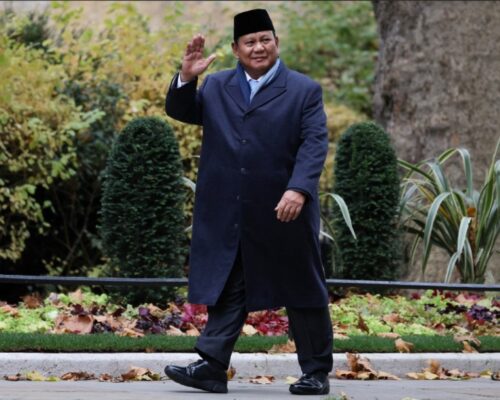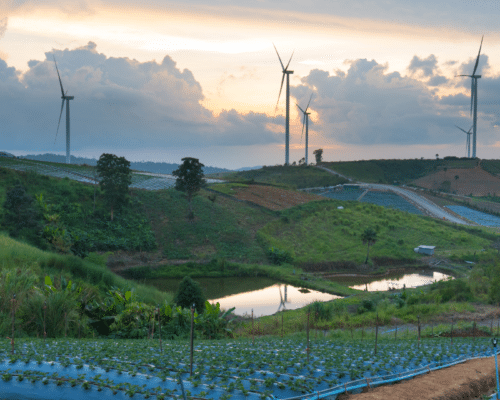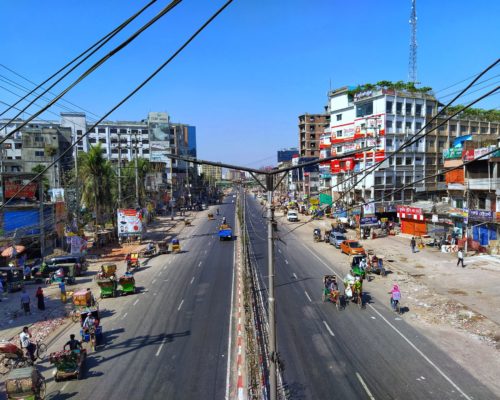Indonesia’s NRE Bill Calls On Coal-based Energy Sources
Photo: Pertamina
18 March 2024 – by Tim Daiss Comments (0)
Indonesia’s New and Renewable Energy (NRE) bill is being debated in its House of Representatives as the company seeks to rein in enormous greenhouse gas emissions from its power sector.
However, the bill was first proposed in 2019 and has been the cause of disagreement and intense debate ever since. Adding to the fray, a newly elected president will also take over by the end of the year, raising even more questions about the best way forward.
Indonesia’s Defense Minister Prabowo Subianto won the presidential election on February 14, with voters handing him a strong mandate.
Indonesia Emissions
Indonesia, the fourth most populous country in the world with 275 million people, has its work cut out to reduce its carbon footprint. It’s the ninth-largest polluter in the world, remains the largest coal exporter and is one of the top liquefied natural gas (LNG) producers and exporters. Indonesia has the third-highest natural gas reserves in Asia and is the region’s second-largest LNG exporter after Malaysia.
Indonesian New and Renewable Energy Bill
The NRE bill’s designation of what constitutes new and clean energy is becoming increasingly opaque. According to Article 9 of the draft bill, new energy sources include nuclear and hydrogen power but also coal-based energy sources like coal bed methane, liquefied coal and gasified coal.
The inclusion of any fossil fuel sources, particularly gas and coal, is cause for concern due to their GHG emissions.
To alleviate those concerns, NRE bill proponents point to carbon capture and storage (CCS) technology as one way to help address emissions. Notably, emissions from coal derivatives, including utilising carbon capture technology, remain significantly high.
Greenwashing
Moreover, CCS is fraught with inherent climate dangers that could cancel out any gains Indonesia may make in developing more renewable energy sources. CCS problems include high cost, low profitability, storage problems and leakage. In addition, CCS only deals with a small percentage of total GHG emissions and completely ignores Scope 3 emissions.
Nonetheless, the Indonesian Ministry of Energy and Mineral Resources (MEMR) passed new legislation last year to boost CCS efforts in the country’s oil and gas sector.
Energy economics, technology and data support renewables development over more fossil fuels and CCS build-out. However, the political determination, at least in Indonesia, still isn’t there yet.
Ineffective and Ambiguous
The Jakarta-based Institute for Essential Services Reform (IESR) has pushed back against the NRE bill. It sees the entire NRE concept as “ineffective and ambiguous”. The organisation has found that including coal derivative products like coal gasification, coal liquefaction and coal-bed methane will potentially hamper Indonesia’s efforts to reduce GHG emissions.
A Lack of Understanding
IESR Executive Director Fabby Tumiwa said that the NRE bill shows a lack of understanding of the need for energy development in the context of Indonesia’s energy transition. The bill “also accommodates the interests of the coal industry, which wants to continue to gain market share when the coal market for electricity generation declines,” he said.
He added that new energy technologies, such as coal downstream, will cause Indonesia to be stuck with fossil energy infrastructure.
Moreover, Indonesia’s reliance on coal and gas for its power sector is already problematic.
Coal Still Reigns in Indonesia
Fossil fuels dominate Indonesia’s electricity generation mix. In 2022, coal made up 61.55% of the total, followed by natural gas (17%), hydropower (8.18%), bioenergy (6.19%), renewables (just over 5%) and other fossil fuels at 1.83%.
Just Energy Transition Partnership
To its credit, Indonesia plans to increase renewable energy to 44% of its electricity generation mix by 2030. That’s up from around 12% in 2022. To help reach that arguably hard-to-attain goal, the country will invest some USD 20 billion in its Just Energy Transition Partnership (JETP).
The JETP is a program funded by several wealthy industrialised countries to help a select group of developing nations reach their respective net-zero goals. Funding partners include Japan, the US, Canada, Denmark, France, Germany, Italy, Norway, the EU and the UK.
Under JETP funding, Indonesia could cut CO2 emissions to 250 million metric tonnes for its power grid by 2030, which is down from its previous cap of 290 million tonnes.
However, there’s been disagreement between Indonesia and several funders over what the funds are intended for. Indonesia wants funds for the early retirement of coal-fired power plants and grid upgrades. Funders, for their part, want more commercial renewable energy projects. Indonesia has also expressed concern over loan terms and interest rates.
Debate Continues
While debate over the NRE bill continues, it could be a long time before it’s finalised and becomes law.
Mardika Parama, a Jakarta-based senior analyst of public policy and government affairs at BowerGroupAsia, told Energy Tracker Asia that there are still a lot of outstanding issues on the bill.
“They need to be serious if they want to complete it before the new government sits in,” he said.
He pointed out that there are a lot of special interest groups in Indonesia’s energy sector that have to be appeased. This includes the coal, gas and LNG sectors that wield enormous economic and political power in the country. This is also one of the reasons that coal derivative products remain part of the NRE bill.
Subianto’s Stance
President-elect Prabowo Subianto’s energy transition stance also remains problematic. On the campaign trail, he highlighted using bioenergy and CCS technology to address emissions.
However, bioenergy (the burning of biomass) creates GHG emissions. From the emissions of particulate matter (aka soot), nitrogen oxide (which contributes to ground-level ozone pollution), various carcinogens and CO2, air pollution created when power plants burn biomass is both toxic and dangerous.
Subianto’s campaign pledges also focused on Indonesia’s energy sovereignty, including self-sufficiency in energy, food and water. He believes that Indonesia can potentially become the world’s “superpower” in biofuels and renewable energy.
He will be sworn in as Indonesia’s new president in October.
by Tim Daiss
Tim has been working in energy markets in the Asia-Pacific region for more than ten years. He was trained as an LNG and oil markets analyst and writer then switched to working in sustainable energy, including solar and wind power project financing and due diligence. He’s performed regulatory, geopolitical and market due diligence for energy projects in Vietnam, Thailand and Indonesia. He’s also worked as a consultant/advisor for US, UK and Singapore-based energy consultancies including Wood Mackenzie, Enerdata, S&P Global, KBR, Critical Resource, and others. He is the Chief Marketing Officer (CMO) for US-based lithium-sulfur EV battery start-up Bemp Research Corp.
Read more







